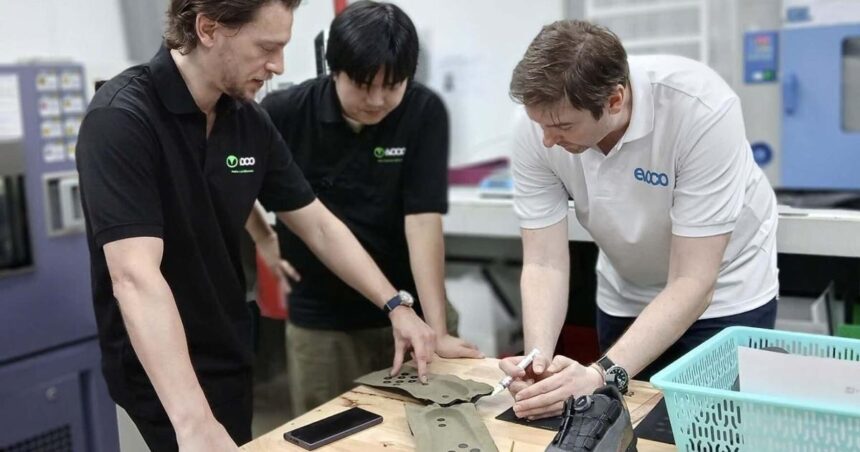When I look at Toronto’s tech district these days, I see a stark contrast to just five years ago. Skyrocketing shipping costs, container shortages, and geopolitical disruptions have transformed supply chain management from back-office operations into headline business strategy. It’s in this environment that Procurify, a Toronto-based startup, has found its moment.
“We didn’t set out to solve a crisis,” says Maya Roberts, Procurify’s co-founder and CEO. “We were building sustainability tools for procurement teams when suddenly everyone from the C-suite down started paying attention to supply chains.”
Founded in 2018, Procurify developed a platform that tracks not just the cost and delivery timing of materials, but their environmental footprint and ethical sourcing credentials. What was once a nice-to-have feature for sustainability reports has become essential as companies scramble to rebuild resilient supply networks.
According to Statistics Canada, nearly 85% of Canadian manufacturers experienced significant supply disruptions between 2020 and 2023. The average cost of these disruptions? A staggering $4.2 million per company annually.
The pandemic exposed vulnerabilities that had been building for decades. Companies optimized for just-in-time delivery and lowest-cost sourcing found themselves paralyzed when single points of failure collapsed. Now, as businesses rebuild, they’re prioritizing visibility and resilience over pure efficiency.
“Before 2020, procurement was about squeezing suppliers for pennies,” explains Roberts. “Today, it’s about knowing exactly where your materials come from, having backup suppliers, and understanding the environmental and social impacts of your choices.”
Procurify’s platform connects with supplier databases to provide real-time risk assessments based on geography, climate vulnerabilities, labor practices, and financial health. What sets them apart is their focus on the Canadian context.
“Most supply chain software is built for massive global corporations,” says Damian Ferreira, supply chain professor at York University. “Canadian mid-market companies have different needs – they’re often dealing with cross-border complexity, smaller order volumes, and stringent provincial regulations.”
The company has grown from 12 employees to over 80 in three years, raising $18 million in venture funding last fall from Portag3 Ventures and Cycle Capital. Their client list includes manufacturers like Magna International and retailers such as London Drugs.
What makes their approach distinctive is the integration of sustainability metrics directly into operational decision-making. While many companies still treat environmental considerations as separate from core business functions, Procurify builds them into every purchase order.
“We can tell you not just how much that shipment of components costs in dollars, but its carbon footprint, water usage, and whether it comes from regions with forced labor concerns,” Roberts explains.
This integration is proving particularly valuable as Canadian businesses prepare for the federal government’s mandatory climate disclosure requirements slated to begin in 2024 for larger companies. According to a KPMG survey, 63% of Canadian businesses report they’re unprepared for these disclosure requirements.
The challenge for companies like Procurify isn’t just technological – it’s cultural. Procurement departments traditionally operated with limited visibility and measured success on cost savings alone. Changing that mindset requires both software tools and organizational transformation.
“The companies succeeding today are those treating suppliers as strategic partners rather than interchangeable vendors,” says Michelle Wong, Chief Supply Chain Officer at Canadian Tire. “That means sharing more information, collaborating on forecasting, and sometimes paying more for reliability and values alignment.”
The Bank of Canada has noted that supply chain resilience investments are contributing to persistent inflationary pressures. In a recent monetary policy report, they estimated that supply chain reconfigurations could add 0.4 to 0.7 percentage points to consumer prices in the medium term.
For consumers, this translates to higher prices but potentially fewer shortages and more transparent information about product origins. Many retailers using Procurify’s system can now provide customers with detailed sourcing information through QR codes on packaging.
Not everyone is convinced that the reshoring and “friendshoring” trend will continue once memories of pandemic shortages fade. Critics point out that economic pressures may eventually push companies back toward lowest-cost suppliers.
“There’s always tension between resilience and efficiency,” acknowledges Roberts. “Our bet is that companies have learned their lesson about hidden costs and risks.”
The company faces competition from established supply chain giants like SAP and Oracle, which have been rapidly enhancing their sustainability features. But Procurify believes their focus on Canadian regulatory requirements and mid-market needs gives them an edge.
“The big platforms are designed for Fortune 500 companies,” says Roberts. “We’ve built something that works for the $50-500 million revenue company that doesn’t have a huge IT team or sustainability department.”
For workers in traditional supply chain roles, the shift represents both threat and opportunity. Routine procurement tasks are increasingly automated, but there’s growing demand for skills in supplier relationship management, risk assessment, and environmental analysis.
Looking ahead, Roberts sees artificial intelligence changing how companies predict and respond to disruptions. Procurify is developing machine learning tools that can suggest alternative suppliers before problems occur, based on early warning signals from news events, weather patterns, and financial indicators.
The company’s success illustrates a broader trend in Canadian tech: solving complex operational problems rather than chasing consumer-facing applications. While less flashy than consumer apps, these B2B innovations often build more sustainable business models.
“We’re not trying to create the next social media platform,” says Roberts. “We’re helping essential businesses make better decisions that impact both their bottom line and the planet. That’s the kind of innovation Canada can lead in.”
In a world where supply chains remain vulnerable to everything from climate disasters to geopolitical tensions, Procurify’s approach may represent not just good business but necessary adaptation. The question isn’t whether supply chains will face further disruption – it’s how prepared companies will be when they do.






